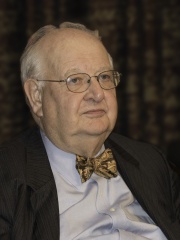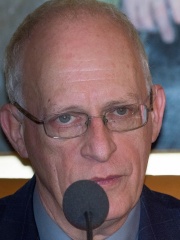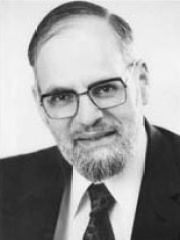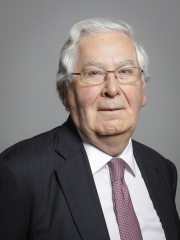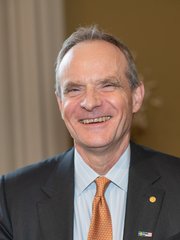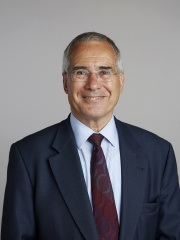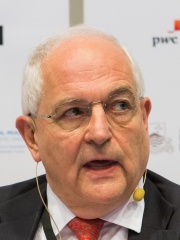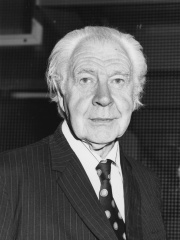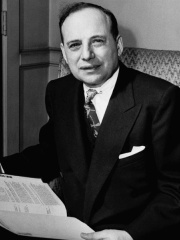

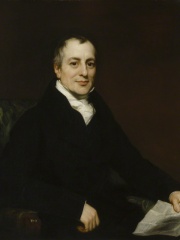

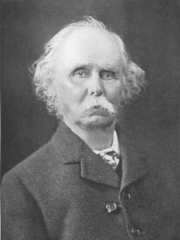
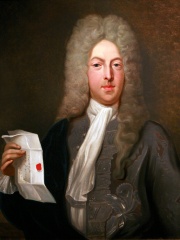
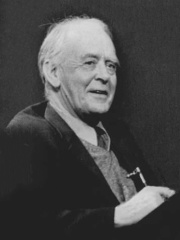
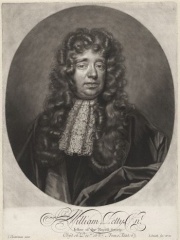
The Most Famous
ECONOMISTS from United Kingdom
This page contains a list of the greatest British Economists. The pantheon dataset contains 414 Economists, 49 of which were born in United Kingdom. This makes United Kingdom the birth place of the 2nd most number of Economists.
Top 10
The following people are considered by Pantheon to be the top 10 most legendary British Economists of all time. This list of famous British Economists is sorted by HPI (Historical Popularity Index), a metric that aggregates information on a biography's online popularity. Visit the rankings page to view the entire list of British Economists.

1. Adam Smith (1723 - 1790)
With an HPI of 92.99, Adam Smith is the most famous British Economist. His biography has been translated into 162 different languages on wikipedia.
Adam Smith (baptised 16 June [O.S. 5 June] 1723 – 17 July 1790) was a Scottish economist and philosopher who was a pioneer in the field of political economy and key figure during the Scottish Enlightenment. Seen by many as the "father of economics" or the "father of capitalism", he is primarily known for two classic works: The Theory of Moral Sentiments (1759) and An Inquiry into the Nature and Causes of the Wealth of Nations (1776). The latter, often abbreviated as The Wealth of Nations, is regarded as his magnum opus, marking the inception of modern economic scholarship as a comprehensive system and an academic discipline. Smith refuses to explain the distribution of wealth and power in terms of divine will and instead appeals to natural, political, social, economic, legal, environmental and technological factors, as well as the interactions among them. The work is notable for its contribution to economic theory, particularly in its exposition of the concept of absolute advantage. Born in Kirkcaldy, Fife, he studied social philosophy at the University of Glasgow and at the University of Oxford, where he was one of the only students to benefit from scholarships set up by John Snell. Following his graduation, he delivered a successful series of public lectures at the University of Edinburgh, that met with acclaim. This led to a collaboration with David Hume during the Scottish Enlightenment. Smith obtained a professorship at Glasgow, where he taught moral philosophy. During this period, he wrote and published The Theory of Moral Sentiments. Subsequently, he assumed a tutoring position that facilitated travel throughout Europe, where he encountered intellectual figures of his era. In response to the prevailing policy of safeguarding national markets and merchants through the reduction of imports and the augmentation of exports, a practice that came to be known as mercantilism, Smith laid the foundational principles of classical free-market economic theory. The Wealth of Nations was a precursor to the modern academic discipline of economics. In this and other works, he developed the concept of division of labour and expounded upon how rational self-interest and competition can lead to economic prosperity. Smith was controversial in his day and his general approach and writing style were often satirised by writers such as Horace Walpole.

2. John Maynard Keynes (1883 - 1946)
With an HPI of 82.77, John Maynard Keynes is the 2nd most famous British Economist. His biography has been translated into 135 different languages.
John Maynard Keynes, 1st Baron Keynes ( KAYNZ; 5 June 1883 – 21 April 1946), was an English economist whose ideas fundamentally changed the theory and practice of macroeconomics and the economic policies of governments. Originally trained in mathematics, he built on and greatly refined earlier work on the causes of business cycles. One of the most influential economists of the 20th century, he produced writings that are the basis for the school of thought known as Keynesian economics, and its various offshoots. His ideas, reformulated as New Keynesianism, are fundamental to mainstream macroeconomics. He is known as the "father of macroeconomics". Keynes was educated at King's College at the University of Cambridge, where he graduated in 1904 with a B.A. in mathematics. During the Great Depression of the 1930s, Keynes spearheaded a revolution in economic thinking, challenging the ideas of neoclassical economics that held that free markets would, in the short to medium term, automatically provide full employment, as long as workers were flexible in their wage demands. He argued that aggregate demand (total spending in the economy) determined the overall level of economic activity, and that inadequate aggregate demand could lead to prolonged periods of high unemployment, and since wages and labour costs are rigid downwards the economy will not automatically rebound to full employment. Keynes advocated the use of fiscal and monetary policies to mitigate the adverse effects of economic recessions and depressions. After the 1929 crisis, Keynes also turned away from a fundamental pillar of neoclassical economics: free trade. He criticized Ricardian comparative advantage theory (the foundation of free trade), considering the theory's initial assumptions unrealistic, and became definitively protectionist. He detailed these ideas in his magnum opus, The General Theory of Employment, Interest and Money, published in early 1936. By the late 1930s, leading Western economies had begun adopting Keynes's policy recommendations. Almost all capitalist governments had done so by the end of the two decades following Keynes's death in 1946. As a leader of the British delegation, Keynes participated in the design of the international economic institutions established after the end of World War II but was overruled by the American delegation on several aspects. His influence began to wane in the 1970s, partly as a result of the stagflation that plagued the British and American economies during that decade, and partly because of criticism of Keynesian policies by Milton Friedman and other monetarists, who disputed the ability of government to favourably regulate the business cycle with fiscal policy. The 2008 financial crisis sparked the 2008–2009 Keynesian resurgence. Keynesian economics provided the theoretical underpinning for economic policies undertaken in response to the 2008 financial crisis by President Barack Obama of the United States, Prime Minister Gordon Brown of the United Kingdom, and other heads of governments. When Time magazine included Keynes among its Most Important People of the Century in 1999, it reported that "his radical idea that governments should spend money they don't have may have saved capitalism". The Economist has described Keynes as "Britain's most famous 20th-century economist". In addition to being an economist, Keynes was also a civil servant, a director of the Bank of England, and a part of the Bloomsbury Group of intellectuals.

3. David Ricardo (1772 - 1823)
With an HPI of 80.48, David Ricardo is the 3rd most famous British Economist. His biography has been translated into 84 different languages.
David Ricardo (18 April 1772 – 11 September 1823) was a British economist and politician of Portuguese Jewish descent. He is recognized as one of the most influential classical economists, alongside figures such as Thomas Malthus, Adam Smith and James Mill. Ricardo was born in London as the third surviving child of a successful stockbroker and his wife. He came from a Sephardic Jewish family of Portuguese origin. At 21, he eloped with a Quaker and converted to Unitarianism, causing estrangement from his family. He made his fortune financing government borrowing and later retired to an estate in Gloucestershire. Ricardo served as High Sheriff of Gloucestershire and bought a seat in Parliament as an earnest reformer. He was friends with prominent figures like James Mill, Jeremy Bentham, and Thomas Malthus, engaging in debates over various topics. Ricardo was also a member of The Geological Society, and his youngest sister was an author. As MP for Portarlington, Ricardo advocated for liberal political movements and reforms, including free trade, parliamentary reform, and criminal law reform. He believed free trade increased the well-being of people by making goods more affordable. Ricardo notably opposed the Corn Laws, which he saw as barriers to economic growth. His friend John Louis Mallett described Ricardo's conviction in his beliefs, though he expressed doubts about Ricardo's disregard for experience and practice. Ricardo died at 51 from an ear infection that led to septicaemia (sepsis). He left behind a considerable fortune and a lasting legacy, with his free trade views eventually becoming public policy in Britain. Ricardo wrote his first economics article at age 37, advocating for a reduction in the note-issuing of the Bank of England. He was also an abolitionist and believed in the autonomy of a central bank as the issuer of money. Ricardo worked on fixing issues in Adam Smith's labour theory of value, stating that the value of a commodity depends on the labour necessary for its production. He contributed to the development of theories of rent, wages, and profits, defining rent as the difference between the produce obtained by employing equal quantities of capital and labour. Ricardo's Theory of Profit posited that as real wages increase, real profits decrease due to the revenue split between profits and wages. Ricardian theory of international trade challenges the mercantilist concept of accumulating gold or silver by promoting industry specialization and free trade. Ricardo introduced the concept of "comparative advantage", suggesting that nations should concentrate resources only in industries where they have the greatest efficiency of production relative to their own alternative uses of resources. He argued that international trade is always beneficial, even if one country is more competitive in every area than its trading counterpart. Ricardo opposed protectionism for national economies and was concerned about the short-term impact of technological change on labour.

4. Thomas Robert Malthus (1766 - 1834)
With an HPI of 80.30, Thomas Robert Malthus is the 4th most famous British Economist. His biography has been translated into 87 different languages.
Thomas Robert Malthus (; 13/14 February 1766 – 29 December 1834) was an English economist, cleric, and scholar influential in the fields of political economy and demography. In his 1798 book An Essay on the Principle of Population, Malthus observed that an increase in a nation's food production improved the well-being of the population, but the improvement was temporary because it led to population growth, which in turn restored the original per capita production level. In other words, humans had a propensity to use abundance for population growth rather than for maintaining a high standard of living, a view and stance that has become known as the "Malthusian trap" or the "Malthusian spectre". Populations had a tendency to grow until the lower class suffered hardship, want, and greater susceptibility to war, famine, and disease, a pessimistic view that is sometimes referred to as a Malthusian catastrophe. Malthus wrote in opposition to the popular view in 18th-century Europe that saw society as improving and in principle as perfectible. Malthus considered population growth as inevitable whenever conditions improved, thereby precluding real progress towards a utopian society: "The power of population is indefinitely greater than the power in the earth to produce subsistence for man." As an Anglican cleric, he saw this situation as divinely imposed to teach virtuous behavior. Malthus wrote that "the increase of population is necessarily limited by subsistence", "population does invariably increase when the means of subsistence increase", and "the superior power of population repress by moral restraint, vice, and misery." Malthus criticised the Poor Laws for leading to inflation rather than improving the well-being of the poor. He supported taxes on grain imports (the Corn Laws). His views became influential and controversial across economic, political, social and scientific thought. Pioneers of evolutionary biology read him, notably Charles Darwin and Alfred Russel Wallace. Presidents Thomas Jefferson and James Madison read Malthus. Malthus's failure to predict the Industrial Revolution was a frequent criticism of his theories. Malthus laid the "theoretical foundation of the conventional wisdom that has dominated the debate, both scientifically and ideologically, on global hunger and famines for almost two centuries."

5. John Stuart Mill (1806 - 1873)
With an HPI of 80.26, John Stuart Mill is the 5th most famous British Economist. His biography has been translated into 92 different languages.
John Stuart Mill (20 May 1806 – 7 May 1873) was an English philosopher, political economist, politician and civil servant. One of the most influential thinkers in the history of liberalism and social liberalism, he contributed widely to social theory, political theory, and political economy. Dubbed "the most influential English-speaking philosopher of the nineteenth century" by the Stanford Encyclopedia of Philosophy, he conceived of liberty as justifying the freedom of the individual in opposition to unlimited state and social control. He advocated political and social reforms such as proportional representation, the emancipation of women, and the development of labour organisations and farm cooperatives. The Columbia Encyclopedia describes Mill as occasionally coming "close to socialism, a theory repugnant to his predecessors". He was a proponent of utilitarianism, an ethical theory developed by his predecessor Jeremy Bentham. He contributed to the investigation of scientific methodology, though his knowledge of the topic was based on the writings of others, notably William Whewell, John Herschel, and Auguste Comte, and research carried out for Mill by Alexander Bain. He engaged in written debate with Whewell. A member of the Liberal Party and author of the early feminist work The Subjection of Women, Mill was also the second Member of Parliament to call for women's suffrage after Henry Hunt in 1832. The ideas presented in his 1859 essay On Liberty have remained the basis of much political thought, and a copy is passed to the president of the Liberal Democrats (the successor party to Mill's own) as a symbol of office.

6. Alfred Marshall (1842 - 1924)
With an HPI of 75.63, Alfred Marshall is the 6th most famous British Economist. His biography has been translated into 61 different languages.
Alfred Marshall (26 July 1842 – 13 July 1924) was an English economist and one of the most influential economists of his time. His book Principles of Economics (1890) was the dominant economic textbook in England for many years, and brought the ideas of supply and demand, marginal utility, and costs of production into a coherent whole, popularizing the modern neoclassical approach which dominates microeconomics to this day. As a result, he is known as the father of scientific economics.

7. John Law (1671 - 1729)
With an HPI of 75.44, John Law is the 7th most famous British Economist. His biography has been translated into 42 different languages.
John Law (pronounced [lɑs] in French in the traditional approximation of Laws, the colloquial Scottish form of the name; 21 April 1671 – 21 March 1729) was a Scottish-French economist and financier. He rose to power in France where he created a novel financial scheme for French public finances known as Law's System (French: le système de Law) with two institutions at its core, John Law's Bank and John Law's Company (also known as the Mississippi company), ending in the devastating boom and bust "Mississippi Bubble" of 1720. Born in Scotland, Law was an accomplished gambler with an interest in the rules of probability. After killing a man in a duel and being sentenced to death, he fled to mainland Europe. He read economics and made the acquaintance of Philippe II, Duke of Orléans, who became regent for the juvenile Louis XV in 1715. In 1716 Philippe approved Law's plan to create a private bank which would take gold deposits in return for bank notes, loaning out the gold. It was structured as a joint-stock company and was bought by the French government in 1718, becoming the Banque royale. In 1717 Law founded another joint-stock company, the Mississippi company, whose purpose was the economic exploitation of Louisiana as well as other French colonies. Law became Controller General of Finances in 1720 and was the richest man in Europe. He had to leave France that same year, as a stock boom turned into a bust. He then lived in various European cities and died in Venice, impoverished. Whereas Law's System unquestionably ended in failure as a monetary framework, it had lasting influence as an early experiment in fiat money. Its soundness remains debated, with some analysts maintaining that it was not fundamentally flawed. Whereas the Mississippi company ended in bankruptcy, whether the collapse of Law's System represented an episode of sovereign default is ambiguous, given that France's debt situation was largely unchanged.

8. John Hicks (1904 - 1989)
With an HPI of 71.34, John Hicks is the 8th most famous British Economist. His biography has been translated into 58 different languages.
Sir John Richard Hicks (8 April 1904 – 20 May 1989) was a British economist. He is considered one of the most important and influential economists of the twentieth century. The most familiar of his many contributions in the field of economics were his statement of consumer demand theory in microeconomics, and the IS–LM model (1937), which summarised a Keynesian view of macroeconomics. His book Value and Capital (1939) significantly extended general-equilibrium and value theory. The compensated demand function is named the Hicksian demand function in memory of him. In 1972 he received the Nobel Memorial Prize in Economic Sciences (jointly) for his pioneering contributions to general equilibrium theory and welfare theory.

9. William Petty (1623 - 1687)
With an HPI of 71.18, William Petty is the 9th most famous British Economist. His biography has been translated into 44 different languages.
Sir William Petty (26 May 1623 – 16 December 1687) was an English economist, physician, scientist and philosopher. He first became prominent serving Oliver Cromwell and the Commonwealth in Ireland. He developed efficient methods to survey the land that was to be confiscated and given to Cromwell's soldiers. He also remained a significant figure under King Charles II and King James II, as did many others who had served Cromwell. Petty was also a scientist, inventor, and merchant, a charter member of the Royal Society, and briefly a member of the Parliament of England. However, he is best remembered for his theories on economics and his methods of political arithmetic. He was knighted in 1661.

10. Ronald Coase (1910 - 2013)
With an HPI of 71.03, Ronald Coase is the 10th most famous British Economist. His biography has been translated into 58 different languages.
Ronald Harry Coase (; 29 December 1910 – 2 September 2013) was a British economist and author. Coase was educated at the London School of Economics, where he was a member of the faculty until 1951. He was the Clifton R. Musser Professor of Economics at the University of Chicago Law School, where he arrived in 1964 and remained for the rest of his life. He received the Nobel Memorial Prize in Economic Sciences in 1991. Coase believed economists should study real-world wealth creation, in the manner of Adam Smith, stating, "It is suicidal for the field to slide into a hard science of choice, ignoring the influences of society, history, culture, and politics on the working of the economy." He believed economic study should reduce emphasis on price theory or theoretical markets and instead focus on real markets. He established the case for the corporation as a means to pay the costs of operating a marketplace. Coase is best known for two articles: "The Nature of the Firm" (1937), which introduces the concept of transaction costs to explain the nature and limits of firms; and "The Problem of Social Cost" (1960), which suggests that well-defined property rights could overcome the problems of externalities if it were not for transaction costs (see Coase theorem). Additionally, Coase's transaction costs approach has been influential in modern organizational economics, where it was re-introduced by Oliver E. Williamson.
People
Pantheon has 49 people classified as British economists born between 1571 and 1969. Of these 49, 9 (18.37%) of them are still alive today. The most famous living British economists include Angus Deaton, Oliver Hart, and Israel Kirzner. The most famous deceased British economists include Adam Smith, John Maynard Keynes, and David Ricardo. As of April 2024, 2 new British economists have been added to Pantheon including James A. Robinson, and Simon Johnson.
Living British Economists
Go to all RankingsAngus Deaton
1945 - Present
HPI: 64.95
Oliver Hart
1948 - Present
HPI: 63.14
Israel Kirzner
1930 - Present
HPI: 61.41
Mervyn King, Baron King of Lothbury
1948 - Present
HPI: 59.96
James A. Robinson
1960 - Present
HPI: 58.84
Simon Johnson
1963 - Present
HPI: 55.61
Nicholas Stern, Baron Stern of Brentford
1946 - Present
HPI: 52.20
Martin Wolf
1946 - Present
HPI: 49.49
Sajid Javid
1969 - Present
HPI: 46.99
Deceased British Economists
Go to all RankingsAdam Smith
1723 - 1790
HPI: 92.99
John Maynard Keynes
1883 - 1946
HPI: 82.77
David Ricardo
1772 - 1823
HPI: 80.48
Thomas Robert Malthus
1766 - 1834
HPI: 80.30
John Stuart Mill
1806 - 1873
HPI: 80.26
Alfred Marshall
1842 - 1924
HPI: 75.63
John Law
1671 - 1729
HPI: 75.44
John Hicks
1904 - 1989
HPI: 71.34
William Petty
1623 - 1687
HPI: 71.18
Ronald Coase
1910 - 2013
HPI: 71.03
Lionel Robbins
1898 - 1984
HPI: 69.82
Benjamin Graham
1894 - 1976
HPI: 69.43
Newly Added British Economists (2025)
Go to all RankingsOverlapping Lives
Which Economists were alive at the same time? This visualization shows the lifespans of the 25 most globally memorable Economists since 1700.

